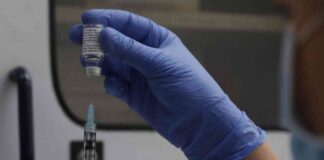Understanding LDL Cholesterol Test: What You Need to Know
When it comes to monitoring your heart health, one important test that your healthcare provider may recommend is the LDL cholesterol test. LDL, or low-density lipoprotein, is often referred to as the “bad” cholesterol because high levels of LDL can lead to the buildup of plaque in your arteries, increasing your risk of heart disease and stroke.
What to Expect During the Test
To measure your LDL cholesterol levels, a blood sample is required. Typically, the blood is drawn from a vein in your elbow or the back of your hand. It is essential to fast for 9 to 12 hours before the test, as eating can affect the results. Additionally, certain medications and alcohol can interfere with the accuracy of the test, so be sure to inform your healthcare provider about all the medications you are taking, including over-the-counter drugs and supplements.
During the test, you may feel a slight sting when the needle is inserted, and some throbbing at the site after the blood is drawn. However, these sensations are usually mild and temporary.
Interpreting Your Results
Ideally, you want your LDL cholesterol levels to be low, as lower levels are generally associated with better heart health. A high LDL cholesterol level is considered to be 190 mg/dL or higher, which indicates an increased risk of heart disease.
For children, the target LDL level is less than 110 mg/dL. For adults, levels ranging from 70 to 189 mg/dL are often considered too high, especially if you have diabetes, a high risk of heart disease, or a history of heart-related issues.
If your LDL levels are elevated, your healthcare provider may recommend lifestyle changes such as adopting a healthier diet, losing weight, exercising regularly, quitting smoking, and limiting alcohol consumption. In some cases, medication may also be prescribed to help lower your LDL cholesterol levels.
Treatment Guidelines
Healthcare providers traditionally aimed to achieve specific LDL cholesterol targets through medication. However, newer guidelines suggest that targeting a specific number may not be necessary, especially for patients at higher risk of heart disease. Instead, stronger medications may be used to effectively manage cholesterol levels.
While some guidelines recommend specific LDL targets, such as lowering LDL to less than 55 mg/dL for very high-risk patients, it is essential to discuss the most appropriate treatment plan with your healthcare provider based on your individual risk factors.
Factors Affecting LDL Levels
Several factors can contribute to high LDL cholesterol levels, including a diet high in saturated fats, lack of physical activity, obesity, diabetes, metabolic syndrome, certain medications, hypothyroidism, and genetic disorders that affect cholesterol metabolism.
If your LDL levels are elevated, lifestyle modifications are crucial in managing your cholesterol levels effectively. However, in some cases, medication may be necessary to achieve optimal LDL levels and reduce your risk of cardiovascular disease.
Risks Associated with the Test
While the LDL cholesterol test is generally safe, there are some risks associated with having your blood drawn. These risks include excessive bleeding, fainting, multiple punctures to locate veins, hematoma, and the risk of infection. However, these risks are minimal and can be further minimized by ensuring that the procedure is performed by a trained healthcare professional.
It is essential to follow your healthcare provider’s recommendations regarding the LDL cholesterol test and any necessary follow-up care to maintain your heart health and overall well-being. Regular monitoring of your cholesterol levels can help you make informed decisions about your health and reduce your risk of heart disease and other complications.
In conclusion, understanding the LDL cholesterol test and its implications for your heart health is essential in managing your overall well-being. By working closely with your healthcare provider, adopting healthy lifestyle habits, and following a personalized treatment plan, you can effectively lower your LDL cholesterol levels and reduce your risk of cardiovascular disease. Remember, knowledge is power when it comes to taking control of your health.

















